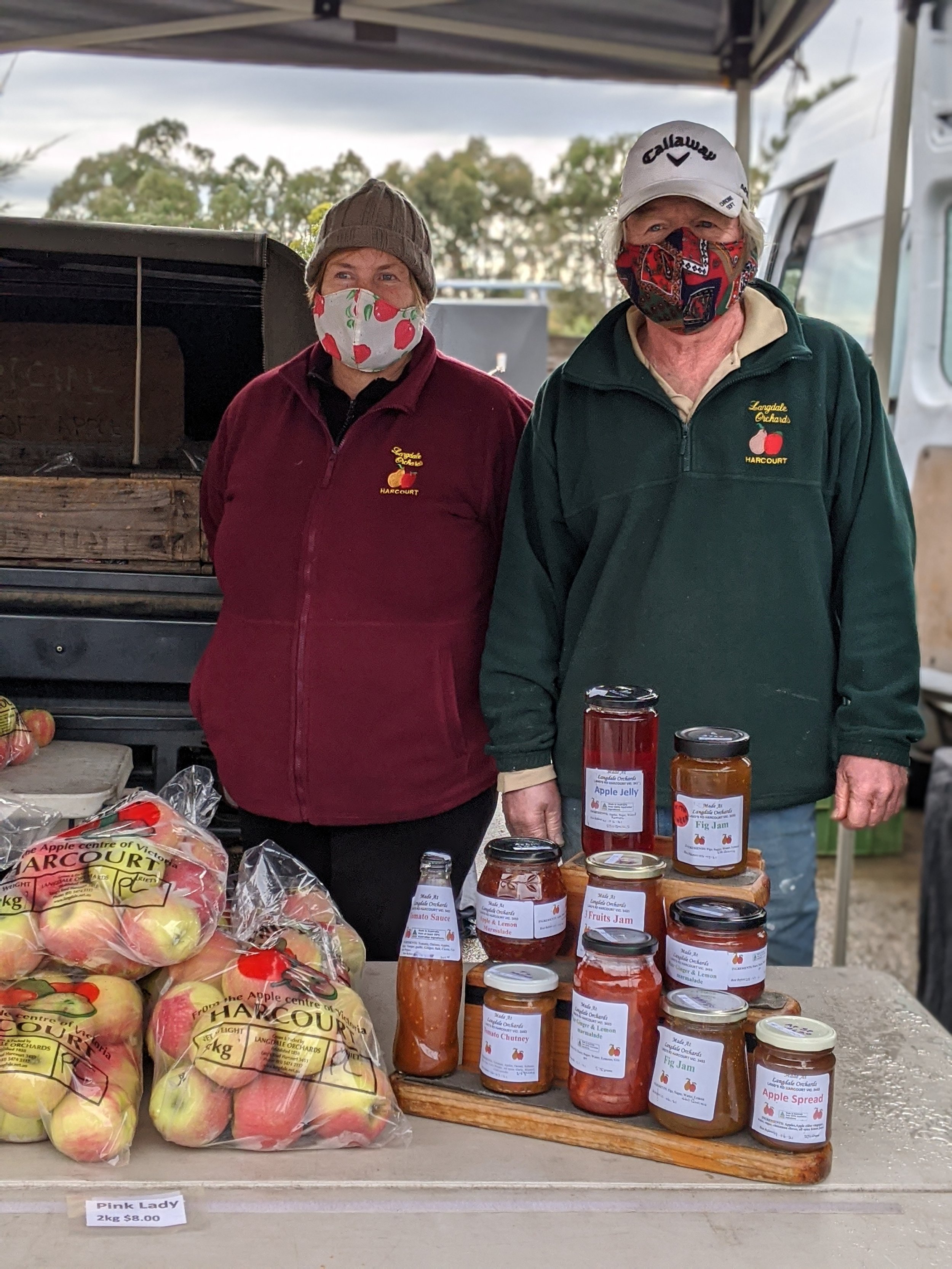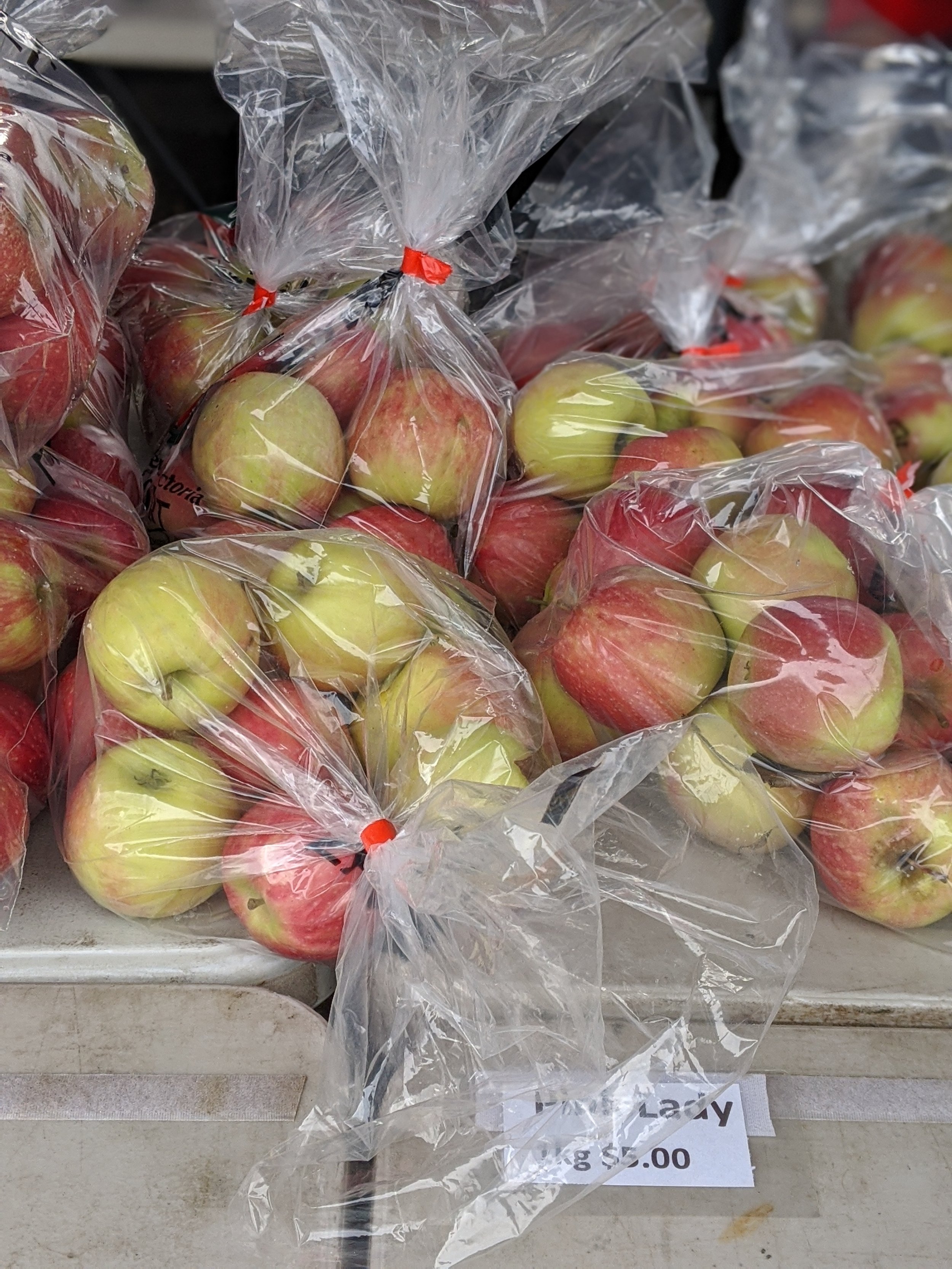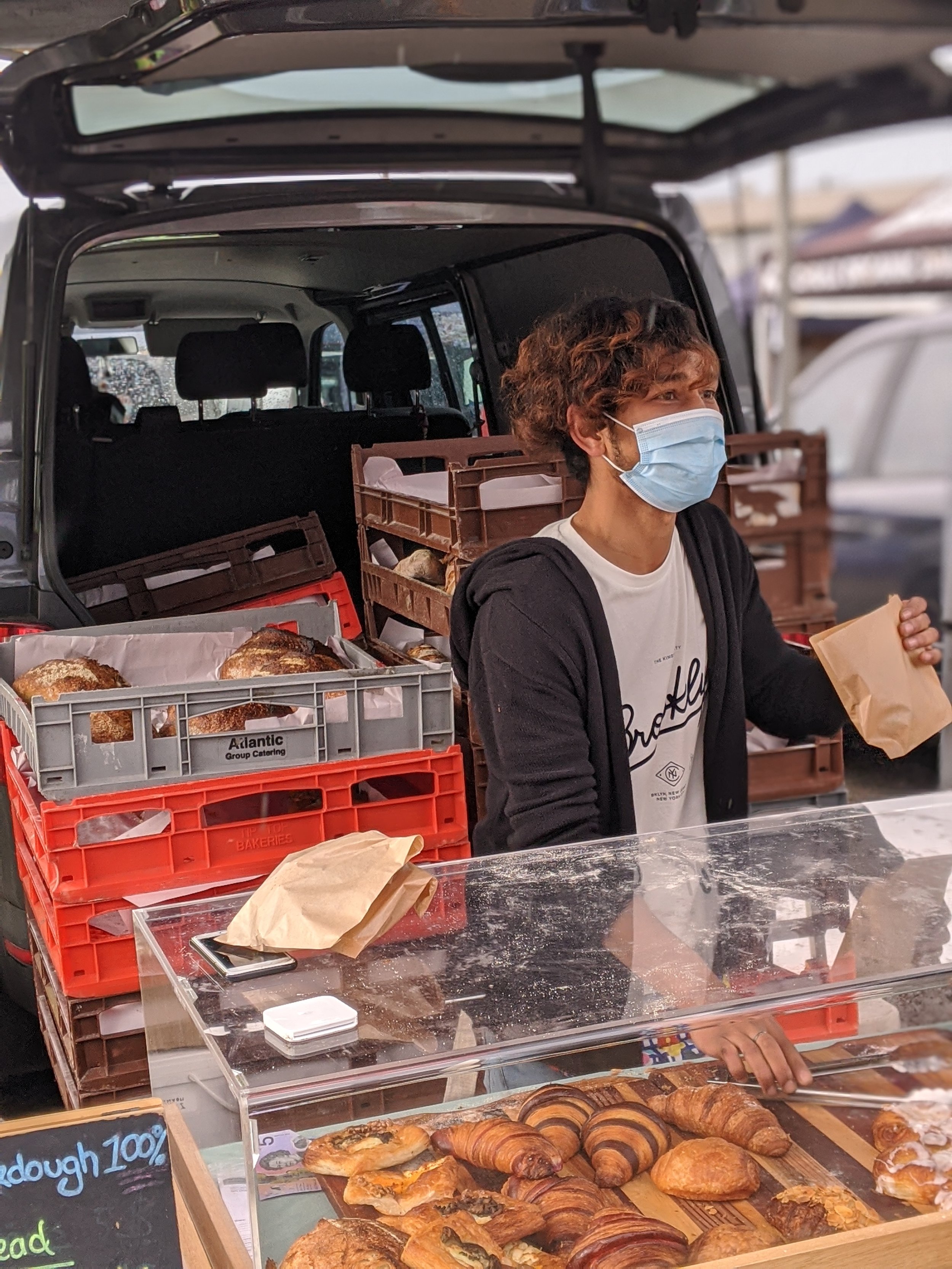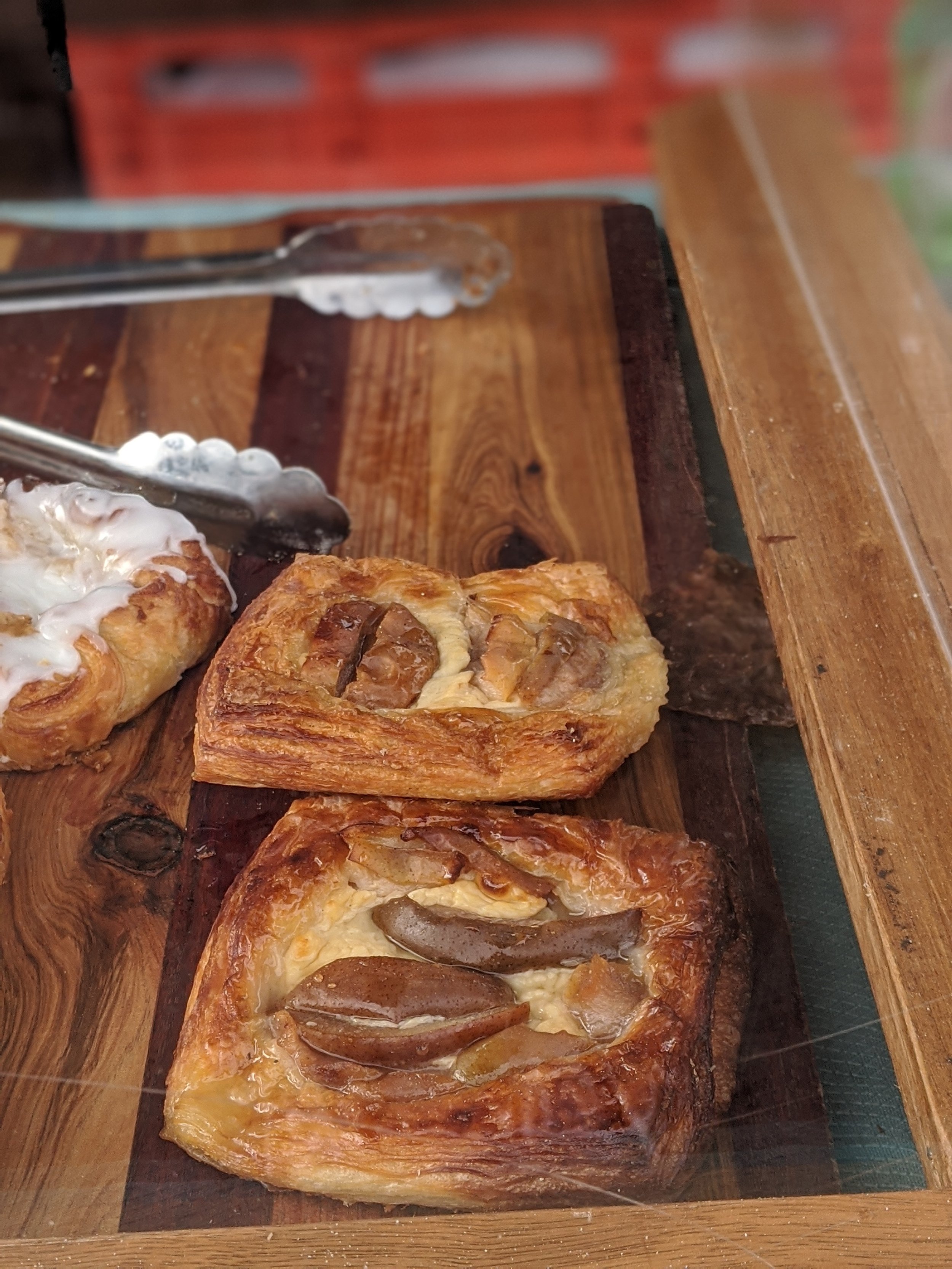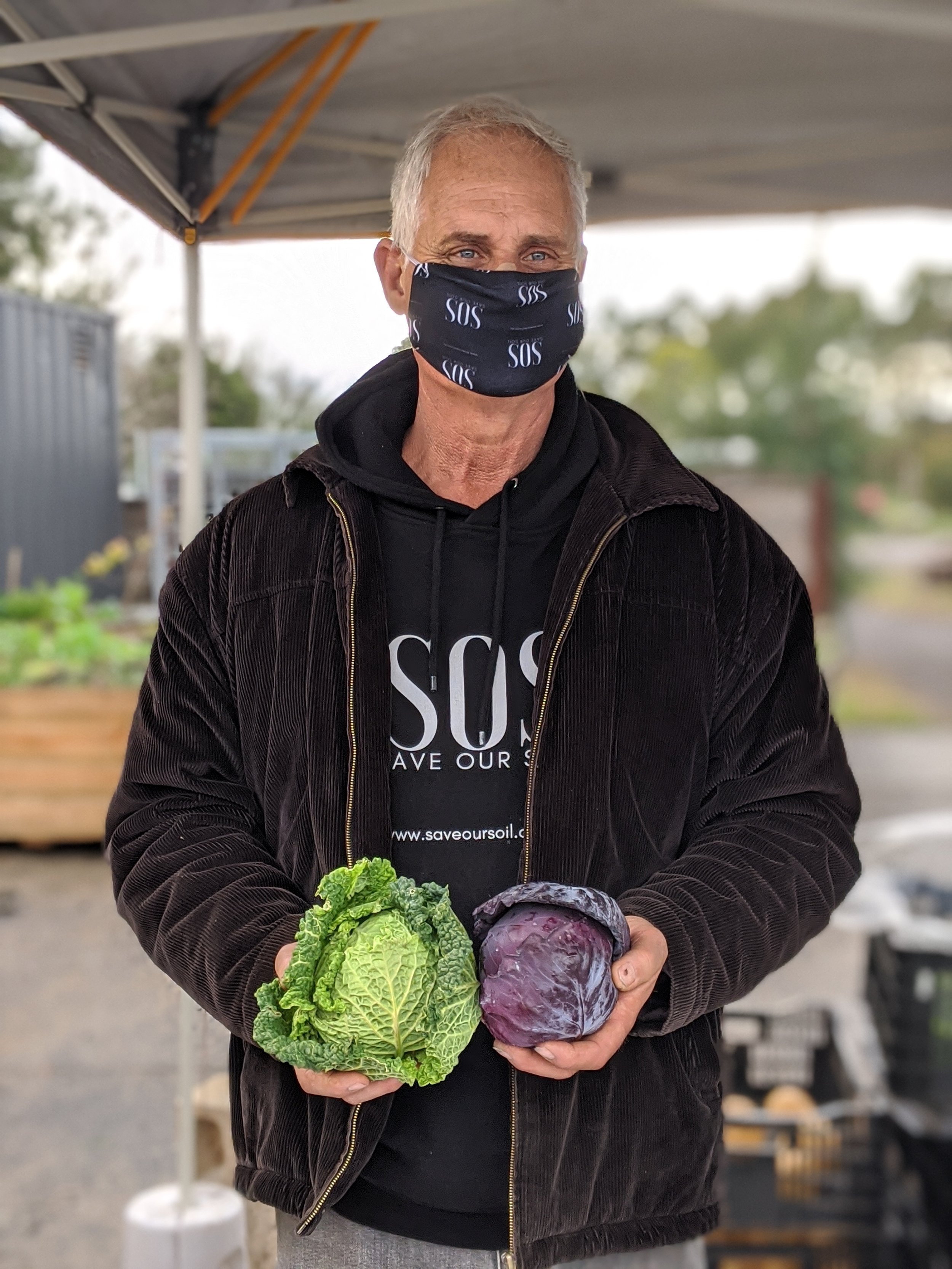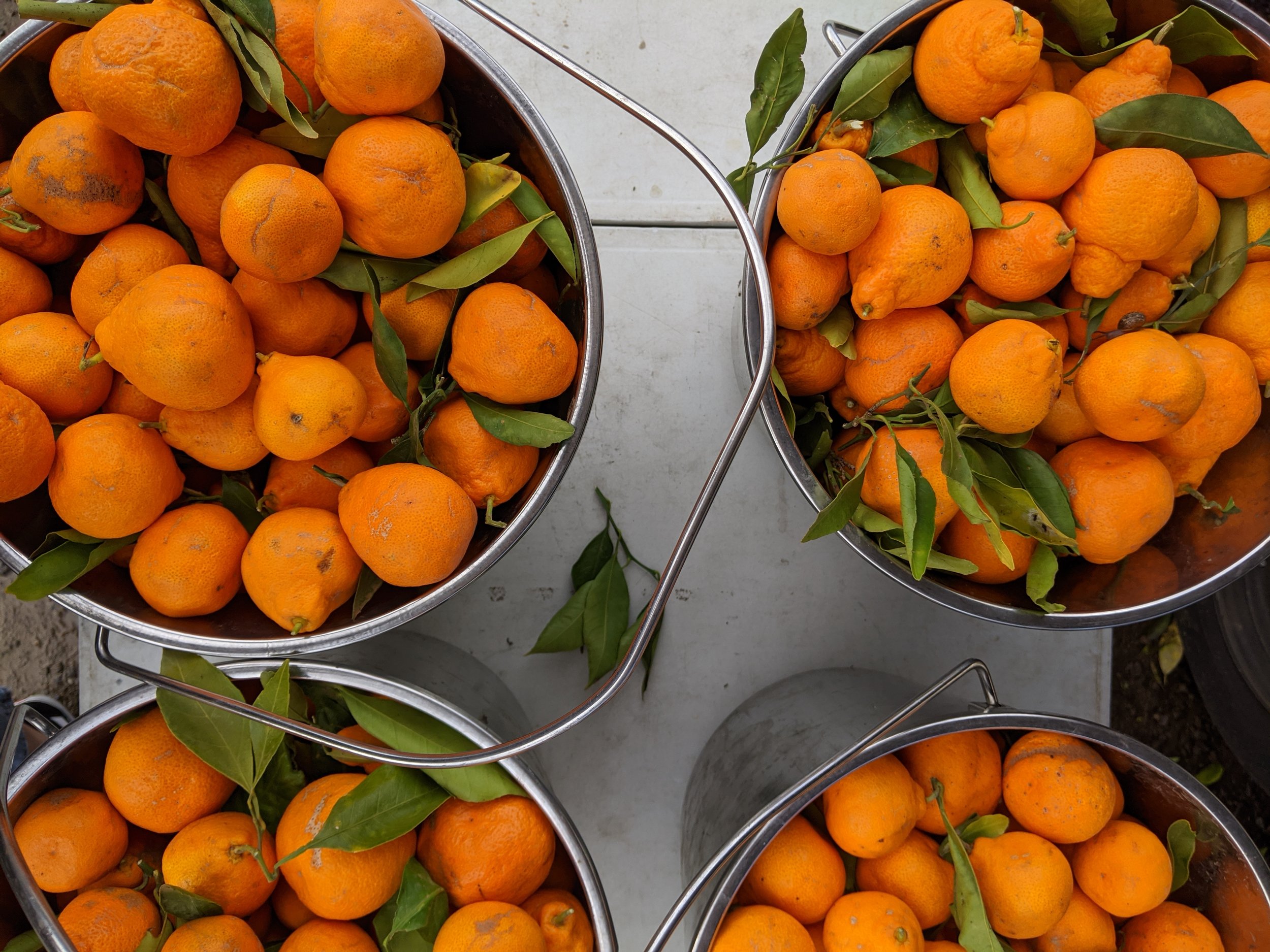Melbourne Farmers Markets
Stories of collaboration and zero-waste
For those who already shop there, Melbourne Farmers Markets are a very special place. For those who don’t, let me tell you a few stories about why they might be worth a visit.
Operating multiple markets across the city, Melbourne Farmers Markets are a not-for-profit social enterprise which brings local Victorian producers in one place so that we get that unique opportunity to meet the person responsible for our food and directly support their livelihood. As well as getting our hands on some pretty impressive fresh produce!
Melbourne Farmers Market, Alphington, Melbourne | Wurunjeri Land
Walking amongst the stalls on a sunny weekend, I hear friendly chit chat, market stall recipe suggestions and great stories of collaboration between the local producers. And I generally just feel... warm. When I mention this to Mike from Mike’s Mussels (the first stall I visit) he smiles and tells me "I just love the customers! You build up real relationships y'know, they become friends!"
Mike is a Melbourne Farmers Markets regular, and has been bringing his tasty mussels to markets for 10/15 years. His business has one of the few permits for mussel farming in Victoria and is turning to an exciting new cultivation: sea vegetables! Mike tells me about the labour intensive, hard work of mussel farming and how his two daughters are more interested in developing the sea vegetable side of the business. He is happy and excited to move on to that!
Wakame is a species of edible seaweed with a unique taste and texture and is highly nutritious. “It’s a winter bloomer”, Mike tells me from behind his big pot of bubbling miso soup. It is also incredibly sustainable!
We fall into chats about market collaborations. “Oh yes!” he says, “the veggies in my miso come from the market. The guys in the blue tent over there” and points to his neighbour. “I go in the morning when I get to the market, grab some veggies and then we barter our way with soups and mussels. The produce here is just so incredible, you can’t beat it! I grab what I need, it’s such an easy thing to do at these markets”.
Mike and his Mussels at Melbourne Farmers Market, Alphington, Melbourne | Wurunjeri Land
After saying goodbye to Mike (sipping a cup of his miso soup), I head over to meet Gavin and Carole, who are standing behind Langdale Orchards’ stand with hundreds of tasty-looking apples. They have been doing markets for 25 years, the last 5 of which with Melbourne Farmers Markets.
“The bakery here at the market (Ket Baker) buys our seconds to make their pastries”, Gavin tells me. By seconds he means those apples that look a little rougher, too big or two small in size, which don’t tend to find their way into a market-goer’s shopping bag. “See over there, that stall just there!”. I head over and buy an apple pastry just cause I have to try it… yumm!
Mark from Save Our Soil is the next producer I stop and chat to.
He has been farming using biodynamic principles for 6 or 7 years, and we end up talking about his Victorian certified sweet potatoes. “There are only a few of these in the state” apparently, and he’s probably the biggest grower. “There’s a short window of 6 weeks in which you can grow them here. You bring them to the market and people take the medium ones, they don’t want the too small or too big. The seconds as they call them.”
Mark tells me how Melbourne Farmers Markets founder Miranda had come up to his stall one day, looked at all the potatoes and asked him where those seconds would end up. “Well” was Mark's response “I sell them off cheaper at the end of the day, maybe bring them back next week at a reduced price. If they’re not sold they go back to the soil”. Miranda then told Mark about Moving Feast, a collective of social enterprises working together to cook, grow and deliver food to vulnerable people in Victoria during the pandemic. After that conversation, Melbourne Farmers Markets proceeded to buy all his seconds at the end of the market, to go into meals cooked by Moving Feast participants. “It’s great that way cause Miranda took all of them”.
“They’re also incredibly nutritious” and Mark moves on to tell me about the great quality of these potatoes, which will all be going into relief food. Different from the usual concept of seconds associated with scraps!
“It’s also a value for education! People don’t realise the extent of a second one, that they’re just as good. There’s a lot of possible wastage. One reason why I wanted to start off with markets was exactly this. To avoid the waste.”
So where does your waste go Mark?
He thinks about it a bit and says “Well… it depends on what you call waste right? Is waste what doesn’t get eaten by people? Because obviously I would rather this all be eaten by people, but what doesn’t, I compost and put back on the field. I give it back to the field.” In actual fact none goes to waste.
I then remember Mike, Gavin and Carol’s experience with other stall-holders in the market, and ask Mark if he too tends to collaborate with his neighbours.
“Trent from Take Me Home Pasta. We have a great thing going. See this?” He points at the passata sitting beside his fresh produce. “I put in the tomatoes, he cooks them up and bottles it all, and then we go 50/50. I wouldn’t have the facilities to do this kind of thing, but with Trent it’s easy, we share”.
Oranges at Melbourne Farmers Market, Alphington, Melbourne | Wurunjeri Land
And because we’ve mentioned waste and seconds, my last little story to share is Lynton’s (Kingfisher Citrus).
Growing up on a farm, his philosophy had always been “if you can make money from your waste then you’re doing things right. Even if you’re only making a dollar… it all goes towards employing someone”.
My conversation with Lynton followed the journey of a Kinfisher Citrus orange, which starts from a tree on his farm in North West Victoria, takes on many different forms, and sometimes ends up back in the soil where it came from. So here we go:
We pick the orange off the trees on the farm.
Fresh oranges are sold at Melbourne Farmers Markets on the weekend.
The ones that don’t sell go into a jumbo bag, and are sold later on at a lower price.
Not sold again? A pile of loose oranges comes back to the market with us, sold individually - again, at lower price.
What isn’t sold we can then turn into fresh juice & icy poles for the next market.
Lots of people come in after the skins on a small, personal level. They use them to make candied peel, fruit toast, dried firelighters, and dishwashing liquid.
Another bi-product! Flavoured Balsamic vinegar is made from boiling down the blood orange.
But lots of skins come back, so we do a big mix-up and feed them out to the stock on farms in regional Victoria.
These are just a few of the great stories which pop out of the stall holders at Melbourne Framers Markets, and there is plenty more to tell about the impact of the overarching business… but we’ll leave that for another journal entry!




